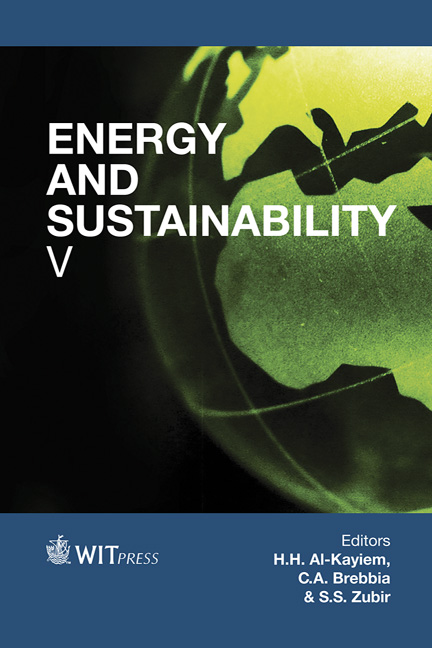Analysis Of Energy Efficiency Improvement And Climate Change Mitigation Policy In Lithuania
Price
Free (open access)
Transaction
Volume
186
Pages
11
Page Range
739 - 749
Published
2015
Size
354 kb
Paper DOI
10.2495/ESUS140661
Copyright
WIT Press
Author(s)
Z. Simanaviciene, A. Volochovic, A. Simanavicius
Abstract
Energy efficiency improvement and climate change mitigation policy in the EU and Lithuania is primarily focused on the energy supply side and the industrial energy users. Many studies in Lithuania have shown that without building a new nuclear power plant, but only implementing all provided energy efficiency improvement measures in Lithuania, these goals will not be achieved. But energy saving and sustainable use options in Lithuanian households remained forgotten.
Most of the studies focused on the social and psychological factors influence to energy-saving behavior, examining cognitive variables, such as values, outlook and attitudes impact on energy savings. Other authors have emphasized the importance of social processes. In this article analyse and summarize performed Lithuanian climate change mitigation policies in household’s evaluation using SWOT and PEST analysis. Research shows that in order to improve energy efficiency in households, a lot of attention is paid to education and heat consumption efficiency improvement. In order to assess the ongoing climate change mitigation policies in Lithuania, PEST and SWOT analysis were performed. Sectors distinguished for analysis: home, transport, energy sector and education and training.
Keywords
behavior, households, energy savings, impact





